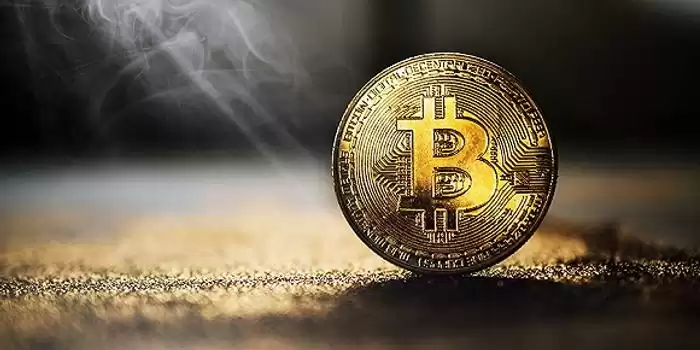-
 bitcoin
bitcoin $87959.907984 USD
1.34% -
 ethereum
ethereum $2920.497338 USD
3.04% -
 tether
tether $0.999775 USD
0.00% -
 xrp
xrp $2.237324 USD
8.12% -
 bnb
bnb $860.243768 USD
0.90% -
 solana
solana $138.089498 USD
5.43% -
 usd-coin
usd-coin $0.999807 USD
0.01% -
 tron
tron $0.272801 USD
-1.53% -
 dogecoin
dogecoin $0.150904 USD
2.96% -
 cardano
cardano $0.421635 USD
1.97% -
 hyperliquid
hyperliquid $32.152445 USD
2.23% -
 bitcoin-cash
bitcoin-cash $533.301069 USD
-1.94% -
 chainlink
chainlink $12.953417 USD
2.68% -
 unus-sed-leo
unus-sed-leo $9.535951 USD
0.73% -
 zcash
zcash $521.483386 USD
-2.87%
How to turn Bitcoin into cash?
By utilizing Bitcoin exchange platforms, P2P marketplaces, ATMs, debit cards, or brokers, individuals can seamlessly convert their Bitcoin holdings into cash, catering to their localized preferences and preferred transaction methods.
Sep 27, 2024 at 05:06 pm

- Register with a reputable cryptocurrency exchange that allows Bitcoin withdrawals.
- Create a trading account and link your bank account.
- Transfer your Bitcoin to the exchange from your hardware or software wallet.
- Sell your Bitcoin for the desired currency, such as USD or EUR.
- Withdraw the cash to your bank account by initiating a wire transfer or instant withdrawal (if available).
- Join a P2P platform that facilitates direct Bitcoin trading between individuals.
- Create an account and verify your identity.
- Find a buyer who accepts your Bitcoin and your preferred payment method (e.g., bank transfer, PayPal).
- Agree on the exchange rate and transfer your Bitcoin to the buyer.
- Receive the cash equivalent from the buyer through the agreed-upon payment method.
- Locate a Bitcoin ATM near you that offers cash withdrawals.
- Insert your Bitcoin wallet's address or scan the QR code on the screen.
- Enter the amount of Bitcoin you want to sell.
- Verify your identity using government-issued ID.
- Receive cash from the ATM after successful transaction processing.
- Apply for a Bitcoin debit card that is linked to your Bitcoin wallet.
- Load Bitcoin onto the card.
- Make purchases or withdraw cash directly from the card at ATMs or POS devices that accept Bitcoin debit cards.
- Contact a Bitcoin broker who can facilitate the sale of your Bitcoin for cash.
- Provide your broker with the necessary details and identity verification documents.
- Negotiate the exchange rate and agree on the payment method.
- Transfer your Bitcoin to the broker's wallet and receive the cash equivalent through wire transfer or bank draft.
Disclaimer:info@kdj.com
The information provided is not trading advice. kdj.com does not assume any responsibility for any investments made based on the information provided in this article. Cryptocurrencies are highly volatile and it is highly recommended that you invest with caution after thorough research!
If you believe that the content used on this website infringes your copyright, please contact us immediately (info@kdj.com) and we will delete it promptly.
- Trump's Fed Chair Pick: Kevin Warsh Steps Up, Wall Street Watches
- 2026-01-30 22:10:06
- Bitcoin's Digital Gold Dream Tested As Market Shifts And New Cryptocurrencies Catch Fire
- 2026-01-30 22:10:06
- Binance Doubles Down: SAFU Fund Shifts Entirely to Bitcoin, Signaling Deep Conviction
- 2026-01-30 22:05:01
- Chevron's Q4 Results Show EPS Beat Despite Revenue Shortfall, Eyes on Future Growth
- 2026-01-30 22:05:01
- Bitcoin's 2026 Mega Move: Navigating Volatility Towards a New Era
- 2026-01-30 22:00:01
- Cardano (ADA) Price Outlook: Navigating the Trenches of a Potential 2026 Bear Market
- 2026-01-30 22:00:01
Related knowledge

What is the total supply of Bitcoin?
Oct 10,2025 at 01:55pm
Total Supply of Bitcoin1. The total supply of Bitcoin is capped at 21 million coins. This limit is hardcoded into the Bitcoin protocol and cannot be a...

Can you buy a fraction of a Bitcoin?
Oct 10,2025 at 06:01pm
Understanding Fractional Bitcoin Ownership1. Yes, you can buy a fraction of a Bitcoin. The smallest unit of Bitcoin is called a satoshi, which represe...

How to buy Bitcoin for the first time?
Oct 21,2025 at 11:00am
Understanding Bitcoin and Its Value1. Bitcoin is a decentralized digital currency that operates on a peer-to-peer network without the need for interme...

Why is Bitcoin considered a revolutionary technology?
Aug 12,2025 at 08:29pm
Decentralization and the Elimination of Central AuthoritiesThe core innovation behind Bitcoin lies in its decentralized architecture, which fundamenta...

Why is Bitcoin considered a revolutionary technology?
Aug 10,2025 at 07:42pm
Decentralized Architecture and Trustless TransactionsBitcoin is considered revolutionary because it introduced a decentralized architecture that opera...

What are the key features of Bitcoin?
Aug 10,2025 at 02:50am
Decentralization and Peer-to-Peer NetworkOne of the most defining characteristics of Bitcoin is its decentralized nature. Unlike traditional financial...

What is the total supply of Bitcoin?
Oct 10,2025 at 01:55pm
Total Supply of Bitcoin1. The total supply of Bitcoin is capped at 21 million coins. This limit is hardcoded into the Bitcoin protocol and cannot be a...

Can you buy a fraction of a Bitcoin?
Oct 10,2025 at 06:01pm
Understanding Fractional Bitcoin Ownership1. Yes, you can buy a fraction of a Bitcoin. The smallest unit of Bitcoin is called a satoshi, which represe...

How to buy Bitcoin for the first time?
Oct 21,2025 at 11:00am
Understanding Bitcoin and Its Value1. Bitcoin is a decentralized digital currency that operates on a peer-to-peer network without the need for interme...

Why is Bitcoin considered a revolutionary technology?
Aug 12,2025 at 08:29pm
Decentralization and the Elimination of Central AuthoritiesThe core innovation behind Bitcoin lies in its decentralized architecture, which fundamenta...

Why is Bitcoin considered a revolutionary technology?
Aug 10,2025 at 07:42pm
Decentralized Architecture and Trustless TransactionsBitcoin is considered revolutionary because it introduced a decentralized architecture that opera...

What are the key features of Bitcoin?
Aug 10,2025 at 02:50am
Decentralization and Peer-to-Peer NetworkOne of the most defining characteristics of Bitcoin is its decentralized nature. Unlike traditional financial...
See all articles










































































